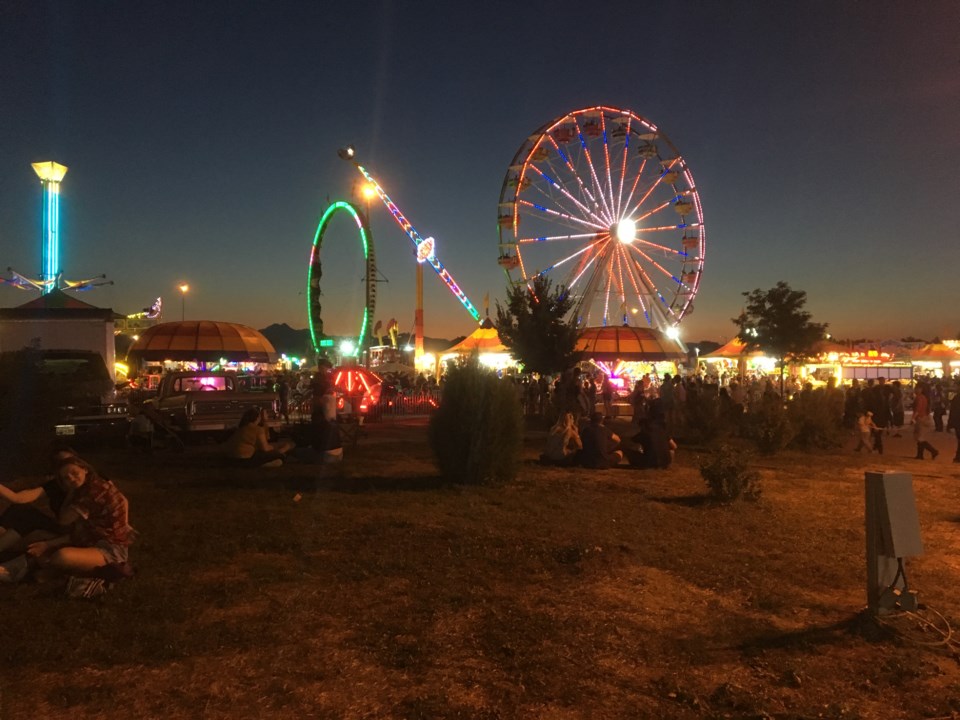Colorado is poised to enter the next phase of loosened coronavirus restrictions, which, if formalized as proposed, will open the door to indoor and outdoor events or venues such as conferences, museums, fairs and concerts.
But the dusty fun, carnival rides and the earthy smells of the 151st Boulder County Fair will be left to the imagination as the showcase of local agriculture will still have to be enjoyed virtually. Fair organizers on June 1 announced this year’s fair is canceled because of continuing concerns over the novel coronavirus, and the easing of restrictions have not changed that plan.
The next phase of virus-related restrictions, which Gov. Jared Polis calls "Protect our Neighbors," was announced Monday and will allow counties to make their own decisions to reopen businesses or social gatherings at the end of June or early July.
The new guidelines are subject to public feedback and will be formalized by the end of this week, Polis said.
"If we can empower our local public health agencies and partners to meet the needs of communities across Colorado, then we truly can rely on these tools to flatten the potential second wave," he said.
Most traditional Boulder County Fair activities at the fairgrounds in Longmont, including concerts, a monster truck rally and livestock exhibits will be viewed online, said Laura Boldt, executive director of the fair. Some 4-H exhibits might be held on the fairgrounds but that may depend on county health officials giving the go-ahead, Boldt said.
“You can look for goat yoga online or listen to a band and check out a video of a demolition derby,” Boldt said. “We will basically be celebrating the Boulder County Fair virtually.”
Some 4-H members might be able to exhibit their projects at the fairgrounds but the public won’t be allowed to view them. It will be open mostly for family, she said.
The fair, which runs this year from July 31 through Aug. 9, also will feature royalty who will talk about their stories on Facebook, Instagram and other social media outlets, Boldt said. 4-Hers also will explain how they grew their projects, including their livestock.
The popular livestock sale also will be online Aug. 8, the night before the event closes, Boldt said.
“We don’t want the families and kids who have worked so hard to miss out on anything,” Boldt said. “We want this to continue to be a memorable experience for them.
A final decision by Boulder County officials on who can display projects on the fairgrounds will be made within a week or so, she said.
“I know so many families want to be able to show their hard work at the fairgrounds,” Boldt said. “But we just don’t know the status of that yet.”
The Boulder County Fair annually draws about 450 4-H exhibitors and as many as 150,000 spectators over 10 days.
“We just don’t want people to miss out on the experience of the fair,” Boldt said. “We want it to be something they will always remember.”
The fair remains virtual, but Boulder County Public Health is ready to help put events other back on the summer calendar.
“We will support these events provided all of the requirements set forth by (the Colorado Department of Public Health and Environment) are followed and, of course, we will always partner with cities and towns,” Chana Goussetis, public information officer for Boulder County Health, stated in an email Tuesday.
Polis on Monday also announced that residential summer camps can open with as many as 10 children in individual indoor settings and 25 outdoors.
Bars also can open at 25% capacity, or up to 50 people. And the county health department is poised to help those establishments get back in business, too.
Goussetis stated, “We will follow the same structure for supporting the safe opening of bars as we have with restaurants, which is by providing business owners and managers with guidance and support to understand and follow the requirements. It will be up to each individual business and their ability or desire to meet the requirements to reopen.”
In recent weeks, Colorado has seen a downward trend in new cases of the coronavirus and in hospitalizations. That contrasts with new spikes of cases in neighboring Arizona and Utah, and Polis once again said he was "concerned and deeply worried" about developments in those two states.
As of Tuesday evening, the state had 29,442 confirmed coronavirus cases and 1,373 deaths due to the virus, according to the Colorado Department of Health and Environment. Boulder County totals stood at 1,100 cases and 69 COVID deaths on Tuesday evening, according to county data.
For most people, the virus causes mild or moderate symptoms that clear up in two to three weeks. Older adults and people with existing health problems can face severe illness and death. The vast majority of people recover.
Boulder County Public Health’s focus in moving toward broader reopenings will remain on balancing “the risk to human health from the novel coronavirus with impact to the economy and individual livelihoods,” Goussetis stated.
“We support all businesses in their efforts to operate as long as it is done safely and according to statewide or local Public Health orders. Naturally, if we see a subsequent and ongoing increase in COVID-19 cases related to business operations or gatherings we may need to make adjustments to the guidance for our community,” she said. “It is up to each individual to do all that they can to keep COVID-19 at bay so that our businesses may thrive.”
— Patty Nieberg of the Associated Press/Report for America contributed to this story.

